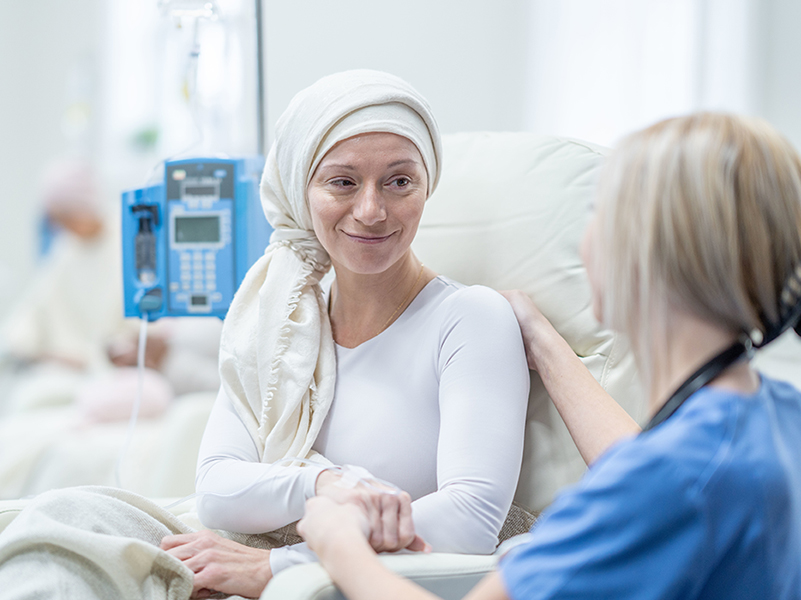By Anne Snively, MBA, CAE, and ChatGPT
As generative artificial intelligence (AI) such as ChatGPT becomes more integrated into society, many people may use it as a source of health information to learn about a wide variety of health conditions or even to self-diagnose. But how accurate is AI, and what should nurses tell their patients about asking it for advice about their healthcare conditions and symptoms?
Advancements in the natural language processing (NLP) used by ChatGPT and other generative AI tools have made internet research easier than ever. According to the Centers for Disease Control and Prevention, in 2022 nearly 60% of patients admitted to using the internet to find health or medical information. Another 41.5% said they’ve used it to communicate with their healthcare team.
In a 2023 study published in the Journal of Medical Internet Research, authors found “variability in accurate self-diagnosis” and concluded that, “given the risk of harm with self-diagnosis without medical follow-up, it would be prudent for an NLP to include clear language alerting patients to seek expert medical opinions.”
Johnson et al. from Vanderbilt University Medical Center published findings from a 2023 study in which 33 physicians representing 17 medical specialties asked ChatGPT questions and graded the responses for accuracy. The authors concluded that, although results did have a high level of accuracy, they observed significant limitations. They concluded that further development designed to improve “reliability and robustness of these tools [is needed] before clinical integration.”
We decided to try a similar test and asked ChatGPT what it thinks about emerging technologies and AI in oncology nursing. Here is the AI’s (only slightly edited) response:
- AI and machine learning are revolutionizing oncology nursing by enhancing diagnostic accuracy and personalizing patient care. Advanced algorithms analyze complex datasets, including imaging studies and genetic information, to identify patterns that may be missed by the human eye. For example, AI-powered tools can predict patient responses to specific treatments, allowing for more tailored and effective therapeutic strategies.
- Wearable technology and remote monitoring, such as smartwatches and biosensors, are increasingly prevalent in oncology care. These technologies monitor vital signs, activity levels, and other health metrics in real time. For nurses, this means more comprehensive and continuous patient data without the need for frequent in-person visits. Remote monitoring systems alert healthcare providers to potential issues before they escalate, enabling timely interventions and enhancing patient safety.
- Telemedicine and virtual care have seen a significant rise, especially in oncology, where patients often face long distances to reach specialized care. Virtual consultations and remote follow-ups are improving access to care and reducing patient burden. Nurses must ensure that patients receive the same level of support and guidance as they would in an in-person setting. They also help in troubleshooting technical issues and ensuring that patients are comfortable with the technology.
- Robots assist in precision surgeries, reducing recovery times and improving outcomes. Automated systems can manage medication administration to help minimize errors and optimize treatment regimens. Nurses in these environments need to be able to integrate these tools into daily care routines and monitor their effectiveness. Nurses’ expertise ensures that these technologies complement rather than replace the human touch in patient care.
- Advancements in genomics are paving the way for personalized medicine, where treatments are tailored based on an individual’s genetic profile. Nurses are at the forefront of this shift, coordinating genetic testing, interpreting results, and incorporating them into personalized care plans. This approach can be more effective and require less-toxic treatments, ultimately enhancing patient outcomes and quality of life.
What do you think? How did ChatGPT do with this question? Give it a grade and tell us what you think below.
Now it’s your turn. If you haven’t yet used ChatGPT, go to chatgpt.com and ask it to help you explain complex information to a patient, advance your career, role play with a hypothetical patient, or even play an educational game with you. (See sidebar for sample prompts.) Remember to clearly and precisely explain what you’re looking for, and you can even set parameters around tone, length, and style. Give it a try, and see what you think. Even if you don’t think it’s something you’ll use, keep in mind that many of your patients likely will.






